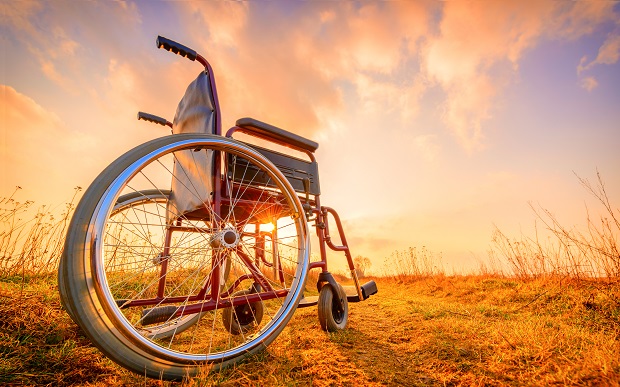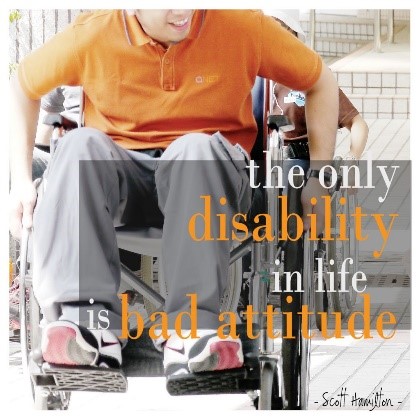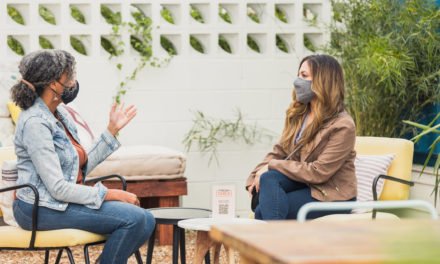
Over the last two weeks, we’ve used our “Intent vs. Impact” series to explore the “teachable moments” in situations where our intentions were/are not consistent with the subsequent impact. The first two posts explored teachable moments that involved conversations around race—an area that I was pretty comfortable writing about, based on some of my own personal experiences. As a black woman, I could relate to the “impact” of the well intentioned moments I shared.
This week, I am changing that up a bit, and am sharing an area of diversity that has and continues to present “teachable moments,” for me, personally. That dimension of diversity is disability. As someone who experiences the benefits of ability privilege, in (if we’re being honest) a systemically able-ist society, I recognize that I have my own blind spots. Even as a D&I practitioner, I’ve also perpetuated messages that, though well-intentioned, did not have a positive impact. Let’s discuss this one …
How many times have we heard the quote, “the only disability in life is a bad attitude,” or found ourselves sharing or being encouraged by “inspirational” memes and images like this one?

Let’s talk Intent …
I think on the surface, it’s easy to assume that quotes and images like this are innocent. They seek to inspire, encourage, and spread positivity. Ultimately, the message suggests that one should think positive, and if one does, there isn’t anything one can’t do. In most cases, this quote is accompanied with an image of a person with a physical disability, doing something we may identify as being “exceptional,” perhaps because whatever their doing surpasses our expectations of people with disabilities. “If “they” can do it, surely I can too.” “No matter how bad my life is, I should keep a positive attitude. At least, I’m not that person.”
On Impact …
The late Stella Young, journalist, activist, comedian, posed a compelling question in her TEDtalk: “But what if you are that person?”
Ok, now press play.
Rather than just seeing people with disabilities or disabled people (as she prefers), as who they are—people and human—we (non-disabled people) often time have this inclination to view them as tools and sources of our own inspiration. Stella’s right—it kind of is “inspiration porn.” And though not intentional, it is objectifying.
I really think that this lie that we’ve been sold about disability is the greatest injustice. It makes life hard for us. And that quote, “The only disability in life is a bad attitude,” the reason that that’s bullshit is because it’s just not true, because of the social model of disability. No amount of smiling at a flight of stairs has ever made it turn into a ramp. Never. Smiling at a television screen isn’t going to make closed captions appear for people who are deaf. No amount of standing in the middle of a bookshop and radiating a positive attitude is going to turn all those books into braille. It’s just not going to happen….Disability doesn’t make you exceptional, but questioning what you think you know about it does.”
That said, I think that is the charge, here: continue to question and challenge ourselves, our worldviews. That is how we learn.


















Thanks for this excellent post and link to the TED talk; I otherwise might never had heard of Stella Young – that was a great speech she gave (I usually hate TED talks!) and such important points for individuals who are not disabled to consider in how they perceive/treat disabled persons. It is so sad to hear that she passed away at such a young age.